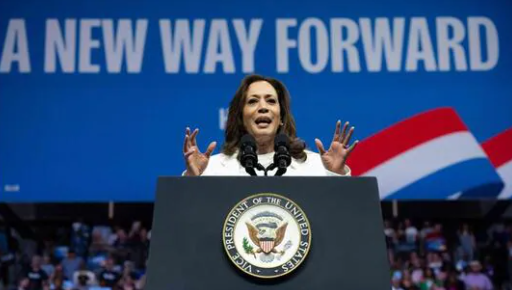While Addressing a gathhering in Pennsylvinia, First Black Vice President of The U.S, Kamala Harris, reflected her polices about supporting small businessess, building more housing and expanding child tax credit. She emphasized on the need of the country, who needs a president who work for the people of America.
She made no mention of her race during the speech, not even once, and if she defeats her Republican opponent Donald Trump, she will become the first South Asian-American woman to hold the office of President.
Instead of making her status as a woman of color a prominent feature of her pitch, Harris embraces it when she canvasses voters, focusing instead on her record and policies.
In the next days, she will present her case to voters who identify as minorities in a number of significant contexts. She has an interview with members of the National Association of Black Journalists in Philadelphia on Tuesday, a speech at a Congressional Black Caucus Foundation-sponsored awards dinner in Washington on Saturday night, and an online rally on Thursday with Oprah as the main speaker, featuring organizations like “South Asians for Harris,” “Win with Black Women,” and “White Women: Answer the Call.”
The way Harris chooses to interact with voters also reveals something about who she is. During her time at Howard University, Harris belonged to a historically Black sorority. She recently addressed to women at a different sorority’s annual assembly in Houston, Texas, telling them, “It is so good to be with you this evening, and I say that as a proud member of the Divine Nine.” I also see family as I glance out at everyone in this room.
It’s a different strategy from Hillary Clinton’s 2016 presidential campaign, when she highlighted her ability to shatter the glass ceiling. With little time to waste in this year’s shortened campaign, Harris’ supporters and aides argue that it may be more beneficial to concentrate on the voters rather than herself.








 India
India












